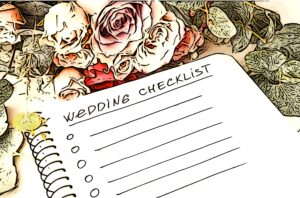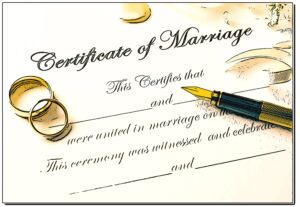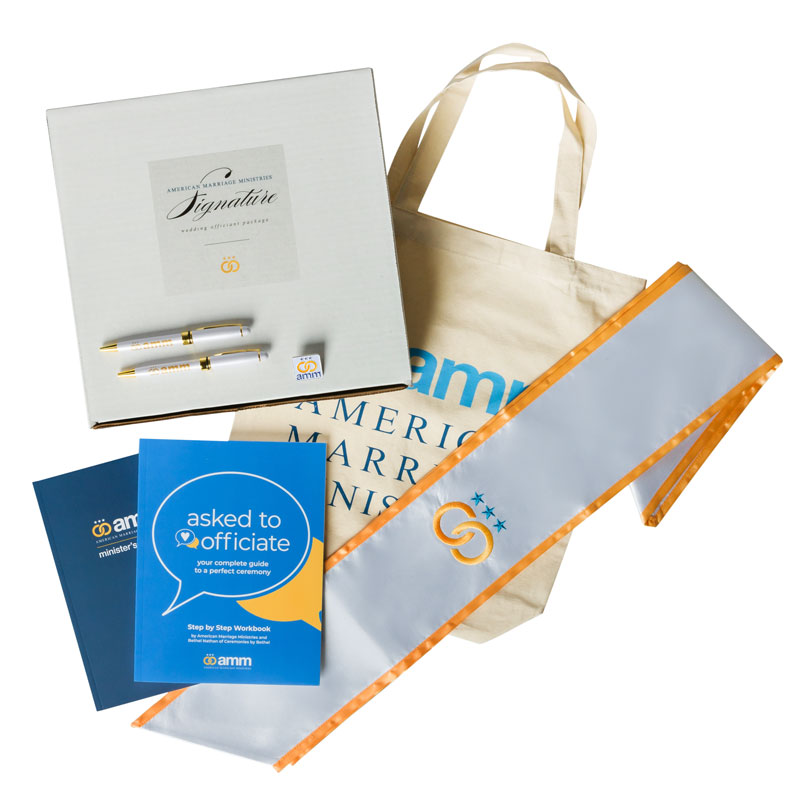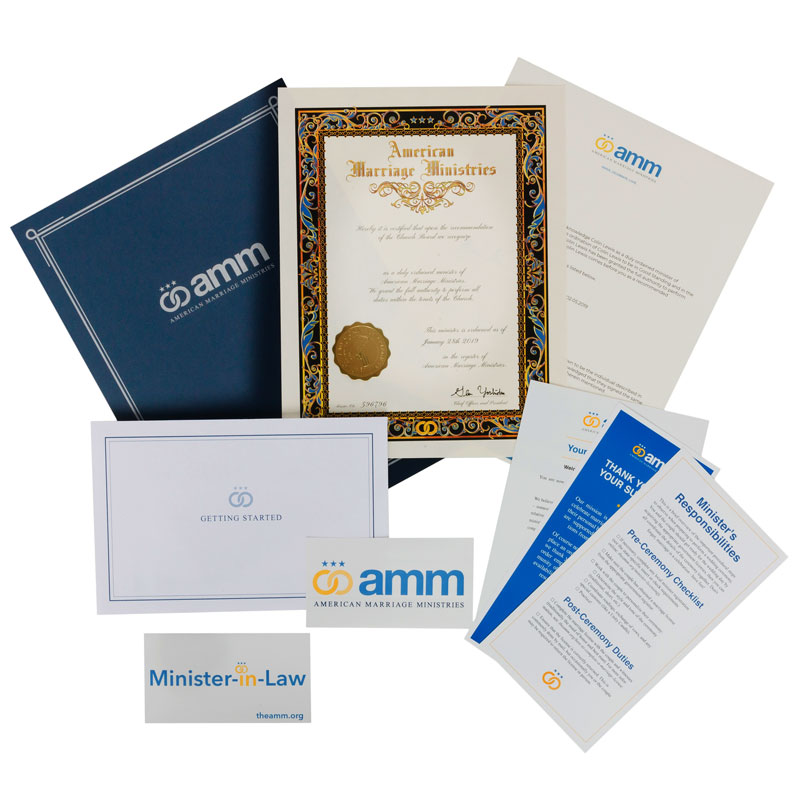Officiate Weddings in San Francisco, California
 From twee hippies to tech heavy hitters, there is no place in the US like San Francisco. Sure it may be an expensive place to live, but between the coastline, access to national parks, and culture steeped in the arts, there is a reason why this California city has become such as desirable place to live. And it is also a desirable place to get married.
From twee hippies to tech heavy hitters, there is no place in the US like San Francisco. Sure it may be an expensive place to live, but between the coastline, access to national parks, and culture steeped in the arts, there is a reason why this California city has become such as desirable place to live. And it is also a desirable place to get married.
Though more important than where you choose to get married in San Francisco is who you choose to officiate your wedding. Imagine having someone you know well, a close friend or family member, officiate your wedding – and how much more meaningful that would make your ceremony. Well, lucky for you, you can do more than just imagine this, you can actually make it happen. And having someone you know get ordained to officiate your wedding is much easier than you might think.
American Marriage Ministries ordains people to officiate weddings for family, friends, and members of their communities. AMM has thousands of ministers in the Bay Area who have already officiated weddings over the past decade plus.. Even better, ordination with “AMM” is free and they also provide everything a first-time officiant needs to help train them for officiating a wedding. Keep reading to to learn more about what you need to know before performing a legally-binding wedding ceremony in San Francisco.
STEP 1: Get Ordained with American Marriage Ministries
American Marriage Ministries ministers are legally allowed to perform marriage in San Francisco. AMM is an IRS Certified 501c3 Non-Profit offering free online ordinations to perform marriage. Marriage ceremonies in the State of California must be performed by an authorized person defined in California Family Code Sections 400-402:
(a) Although marriage is a personal relation arising out of a civil, and not a religious, contract, a marriage may be solemnized by a priest, minister, rabbi, or authorized person of any religious denomination who is 18 years of age or older.
A person authorized by this subdivision shall not be required to solemnize a marriage that is contrary to the tenets of the person’s faith. Refusal to solemnize a marriage under this subdivision, either by an individual or by a religious denomination, shall not affect the tax-exempt status of any entity.
(b) Consistent with Section 94.5 of the Penal Code and provided that any compensation received is reasonable, including payment of actual expenses, a marriage may also be solemnized by any of the following persons:
(1) A judge or retired judge, commissioner of civil marriages or retired commissioner of civil marriages, commissioner or retired commissioner, or assistant commissioner of a court of record in this state.
(2) A judge or magistrate who has resigned from office.
(3) Any of the following judges or magistrates of the United States:
(A) A justice or retired justice of the United States Supreme Court.
(B) A judge or retired judge of a court of appeals, a district court, or a court created by an act of the United States Congress the judges of which are entitled to hold office during good behavior.
(C) A judge or retired judge of a bankruptcy court or a tax court.
(D) A United States magistrate or retired magistrate.
(c) Except as provided in subdivision (d), a marriage may also be solemnized by any of the following persons who are 18 years of age or older:
(1) A Member of the Legislature or constitutional officer of this state or a Member of Congress of the United States who represents a district within this state, or a former Member of the Legislature or constitutional officer of this state or a former Member of Congress of the United States who represented a district within this state.
(2) A person that holds or formerly held an elected office of a city, county, or city and county.
(3) A city clerk of a charter city or serving in accordance with subdivision (b) of Section 36501 of the Government Code, while that person holds office.
(d) (1) A person listed in subdivision (c) shall not accept compensation for solemnizing a marriage while holding office.
(2) A person listed in subdivision (c) shall not solemnize a marriage pursuant to this section if they have been removed from office due to committing an offense or have been convicted of an offense that involves moral turpitude, dishonesty, or fraud.
American Marriage Ministries ministers meet these requirements and are legally allowed to perform weddings in California under the designation of “an authorized person of any religious denomination who is 18 years of age or older”. All you need to do is to get ordained with AMM.
STEP 2: Prepare For Officiating the Wedding
Getting AMM ordained is the easy part. Your next step as the wedding officiant is to prepare for officiating the wedding ceremony. As the wedding officiant, there are two main things you need to prepare for:
- Non-Legal Duty – Officiating the Wedding Ceremony
- Legal Duty – Signing the Marriage License
Non-Legal Duties – You non-legal duties encompass all of the performative aspects of the wedding ceremony. How do I write a wedding ceremony? How do I get ready to perform marriage? What do I say at a wedding?
To learn the answers to all these questions and more, we recommend that you read through the officiant training pages on the American Marriage Ministries website. These resources cover all important aspects of performing marriage and is geared towards first-time officiants. You can also check out these pages for more ceremony prep info:
- Officiant Preparation for a Wedding Ceremony
- Writing a Wedding Ceremony
- How To Perform a Wedding Ceremony
Keep in mind that practice makes perfect. The sooner you get started and the more time you allocate to practice, the better prepared you will be when it comes time to officiate the wedding.
Legal Duties – Your legal duties have everything to do with the marriage license. Your one legal job as the wedding officiant is to sign the marriage license for the couple. This is as simple as it sounds, kust complete and sign a piece of paper. That’s it!
We understand how important it is to make sure the marriage license is properly completed. If you do find yourself confused by some of the fields on the marriage license, check out our page on How to Fill Out a Marriage License.
STEP 3: Officiate the Wedding
Regarding your performative duties, this is where you shine. If you have done your due diligence in preparing for the wedding ceremony, you will do an amazing job. In fact, you may have a lot more fun officiating a wedding than you might think. Many officiants that are AMM ordained to officiate one wedding eventually go on to officiating several. It’s really a lot of fun!
Regarding the marriage license – The couple is responsible for applying for the marriage license. Make sure to double check with the couple before performing the ceremony. At some point on the wedding day, the couple must present to you their marriage license. Your job is to complete and sign it in their presence and any required witnesses. The marriage license can be completed before or after the ceremony, that doesn’t matter. What does matter is that all the fields are completed properly and that it bears your signature.
Once the marriage license is properly signed, you have successfully performed all of your functions as the wedding officiant. Afterwards we recommend that you follow-up with the couple to make sure the marriage license has been returned to its issuance office.
Getting Married in San Francisco
The couple must file for their marriage license from the Marion County Clerk’s Office at least but no more than 90 days before the wediding.
Marriage licenses are available BY APPOINTMENT ONLY. Appointments are available Weekdays during normal office business hours, starting at 8:15 a.m. and every half hour between 8:30 a.m. through 3:30 p.m.
Appointments may be scheduled and paid for through the online appointment system, or you made in person at the San Francisco County Clerk’s Office. Due to possible COVID restrictions, in-person applications may be limited. We suggest you double check online before applying in person.
$110.00 – collected at the time of scheduling. Cash, money order, credit card or debit card in person. For online reservations, you must pay with a credit card at the time of booking.
San Francisco Wedding Planning Logistics
 San Francisco is a very popular wedding destination. Between the vast selection of venues and an army of wedding professionals that know how to create memories, it is obvious why so many couples choose to tie the knot in the Bay Area. For pretty much the same reasons, it can get expensive (averaging $40,000) and booking in-demand professionals and venues requires planning well in advance.
San Francisco is a very popular wedding destination. Between the vast selection of venues and an army of wedding professionals that know how to create memories, it is obvious why so many couples choose to tie the knot in the Bay Area. For pretty much the same reasons, it can get expensive (averaging $40,000) and booking in-demand professionals and venues requires planning well in advance.
Our advice, start very early, like at least a year.
Weather
When it comes to seasons, the Fall is the most popular time to get married in San Francisco. It’s not just the weather though, San Francisco is a cultural mecca that constantly has all sorts of events happening (at least while there is no pandemic). Be sure to check if there are any big events happening around the same time as your wedding.
Travel
San Francisco International Airport (SFO) has the most inbound flights, but if you’re planning a wedding outside of the city, Oakland International Airport (OAK) or Sacramento International Airport (SMF) might be better options for your guests. Getting around the city can be difficult, so take extra care that your wedding guests are lodged near the wedding venue.
Once on the ground, congestion can get pretty bad during peak hours, so let folks know that public transportation in the city is available via Bay Area Rapid Transit (BART) and Muni, and that it works well.
San Francisco Officiant & Couples FAQ
What authorization do I need to perform a marriage in California?
According to the California Department of Public Health, in San Francisco, it is the ordination or investment by the denomination that gives each clergy member the authority to perform marriage rites. Your online ordination through American Marriage Ministries allows you to assume that legal authority to perform weddings.
Family Code, Sections 400-402, are the statutes pertaining to whom can solemnize a marriage in California. We advise that you keep proof of your ordination credentials for your own records. It is good practice to keep your ordination certificate on hand in case you are asked to produce them by the couple.
Can ministers from another state officiate weddings in San Francisco?
Yes. As long as ordained ministers meet the requirements of Family Code, Section 400, out-of-state ministers may perform marriages in San Francisco and anywhere in the State of California. As an AMM minister, you can officiate wedding ceremonies in California, no matter where you are from or what your nationality is.
Where do I register to officiate weddings in San Francisco?
In California it is not required for persons solemnizing marriage to file their credentials with the clerk of the court or with anyone else. The county and state are removed from any responsibility for verification of ministerial credentials. California does not maintain a central registry of members of clergy in the state. Verification is at the discretion of the parties to the marriage.
Can an ordained minister officiate a marriage ceremony for more than one couple at the same time in California?
Yes. There are no laws in California that prohibit multiple couples from being married at the same time. However, all couples must have already applied for valid marriage licenses no more than 90 days prior to the wedding date.
Do I need to review the marriage license before I perform marriage?
Yes. It is the legal duty of the wedding officiant — that’s you — to review the marriage license on the wedding day. According to the California Department of Public Health, “any person who solemnizes a marriage without first reviewing the license is guilty of a misdemeanor (Penal Code, Section 360).” Don’t forget to review and verify that the information is correct to the best of your knowledge.
San Francisco Marriage License Info
 It is the couple’s responsibility to file for the California Marriage License. That being said, below is important information regarding applying for a marriage license in San Francisco County. If you need more clarification on what is meant by “Waiting Period”, “Expiration”, and “Return”, check out the Marriage License Definitions page on the American Marriage Ministries website.
It is the couple’s responsibility to file for the California Marriage License. That being said, below is important information regarding applying for a marriage license in San Francisco County. If you need more clarification on what is meant by “Waiting Period”, “Expiration”, and “Return”, check out the Marriage License Definitions page on the American Marriage Ministries website.
Where do I file for the marriage license?
San Francisco City Hall
1 Dr Carlton B Goodlett Pl #168
San Francisco, CA 94102
How much does the marriage license cost?
$110
How long must I wait before completing my marriage license?
No waiting period.
When does the marriage license expire?
90 Days
Who returns the marriage license?
The Couple
When must the marriage license be returned after the wedding?
Within 10 Days





